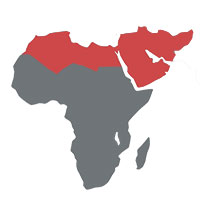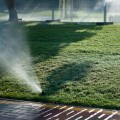Memoirs of a Greensha: Part Three
Yara Al-Wazir | November 3, 2011.
There are many things that divide us as humans – religion, beliefs, thoughts, and ideologies. These things somehow always cause culture shock when I travel. Luckily, there’s one thing that always feels like home: the universal plastic addiction. From sporks to chopsticks, plastic bags to plastic hair extensions, we have somehow managed to integrate this evil leach into every inch of our lives, and Doha is no exception.
Doha, however, shines in the realm of plastic addiction. It seems that the eco-messages plastered around the city that I mentioned in my first post are also plastered on plastic. During one of my exploration trips at Souq Waqif, the local traditional market here in Doha, I was given a bag that had a funny little stamp on the bottom of it: BIODEGRADABLE PLASTIC.

This shocked and puzzled me – since when does the country with the highest greenhouse gas emissions per capita in the world use biodegradable bags at its local market? I continued my excursion throughout the local malls. What I found was astounding: whether it was Carrefour, Express, or the local supermarket around the corner from where I’m staying, all the plastic bags were in one way or another plastered with a message that makes them seem environmentally friendly.
I fail to understand how plastic, a derivative of crude oil, an unsustainable resource, is friendly in any way, but I could be wrong. Saying that plastic is ‘environmentally-friendly’ just because it’s biodegradable is like saying that living under the poverty line can be good for you because it teaches you to be frugal, or that having cancer is perfectly fine because it may or may not go away after a few dozen rounds of chemo therapy. Sure, you’ll be traumatised, hurt and in pain, but it might be gone after a while. Except it’s not; you can’t control getting sick or being poor, but you can control your use of hostile plastic.
I tried so hard to silence the cynical voice in my head. Qatar is still a developing country; I cannot in my right mind expect it to completely phase-out any and all things plastic. So I stopped and went back to what many believe are the core environmental values, our three R’s: reduce, reuse and recycle.
As I grabbed my reusable canvas bag one day to pick up a few things for work, I aimed to reduce my usage of plastic bags, and reuse my canvas bag. I thought that aiming for two birds with one stone was never this easy, but life has a way of proving me wrong. I got the craziest looks from the shopkeeper when I politely refused that soft crunchy plastic bag. “But it’s biodegradable! Look!” she exclaimed, pointing her acrylic nails at the green print. Knowing this would be a never-ending argument, I smiled and walked I way. When I got home, I found out that she had sneaked in a plastic bag anyway.
So I moved on to the third pillar of environmentalism: recycling. After a chat with one of the locals, I found out that Qatar was looking at recycling their million dollar football stadiums that they’re building for Qatar 2022. Props to them, much respect. In the words of Russell Peters, I will ‘take it and go’, something I don’t usually do, but this situation is special. After all, I questioned every person I met in Doha about recycling plants in the city, only to receive the same look that the shopkeeper had given me. The calls to the three companies I found online went unanswered.
Maybe my research skills need polishing, maybe the people I met hadn’t lived in Doha long enough to know where the recycling corners are, but this experience emphasises a fundamental flaw in our production line – we advocate for the three R’s, when we can take a lesson from the first R (Reduce) and suffice ourselves with one word: rethink. Rethinking the way in which we operate, the way we design, build, create, and live will create this new realm that is naturally green. In this realm, we won’t have to print ‘biodegradable’ on our plastic bags because we won’t need them in the first place. Our products can naturally have handles that allow us to carry them. – It’s a hell of a lot easier than finding recycling plants.












comment